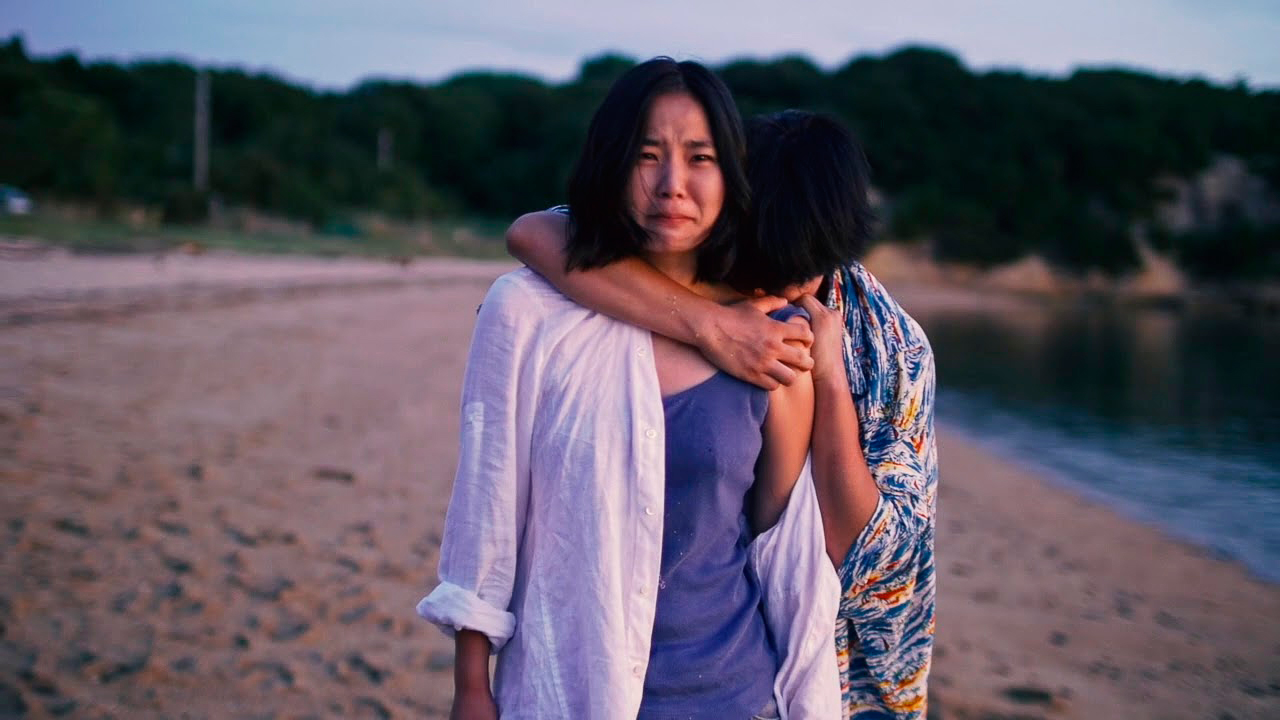Ema exists in a world where summer seems to go on forever. Recently, she’s become rather forgetful so she always has a notebook handy, and there are all sorts of notes pasted everywhere at home as well. One day she receives a drawing of an elephant in the mail from Yan, a childhood friend from her days at an orphanage whose whereabouts are currently unknown. Hoping to see her dear friend again, Ema sets out on a journey to find Yan using the letter’s postmark as a clue. Along the way, she happens to run into Ban whom she’s known since childhood like Yan, and also makes the acquaintance of Yuri, Ban’s girlfriend. Having failed in their attempt to flee to Tahiti, Ban and Yuri slowly but surely become companions on Ema’s journey. Meanwhile, Ema’s feelings toward Yan are beginning to intensify as is her dread over her accelerating memory loss.
Fukuoka born Kudo Riho decided to pursue filmmaking in her second year of high school. She had been moved by Nishi Kanako’s novel ‘Sakura’ and hoped to adapt the story to a movie some day. After graduating from high school, she enrolled at the Kyoto University of Art and Design’s Department of Film Production where she shot Psychedelic Noriko and Summer of Love wo Odotte. Orphans’ Blues, her graduation project, was inspired by a passage from a work by Terayama Shuji: “Summer doesn’t end, it most likely just dies.” In addition to the seemingly endless summer, the vaguely familiar settings of some unspecified country depicted in the movie’s peculiar world intentionally appear to give the story a universality in which the characters’ journey is not specific to any one culture, time, or place. Similarly, Ema’s “gradual memory loss” may be a way to sidestep the term “Alzheimer’s disease” in order for the well-read Kudo to concentrate less on the nature of a specific affliction, but rather its impact on human beings whose memories of others, and other people’s memories of oneself, are the only things that define human existence. The movie has been decorated with numerous awards–two awards including the PFF Award Grand Prix at the 40th Pia Film Festival as well as the Cinefilm Prize at the Yokohama Independent Film Festival. And at the Nara International Film Festival, it won Best Picture and the Audience Award in the festival’s Nara-Wave student category. Additionally, Murakami Yukino’s performance of Ema garnered her the Best Actress award at the 19th TAMA New Wave.

